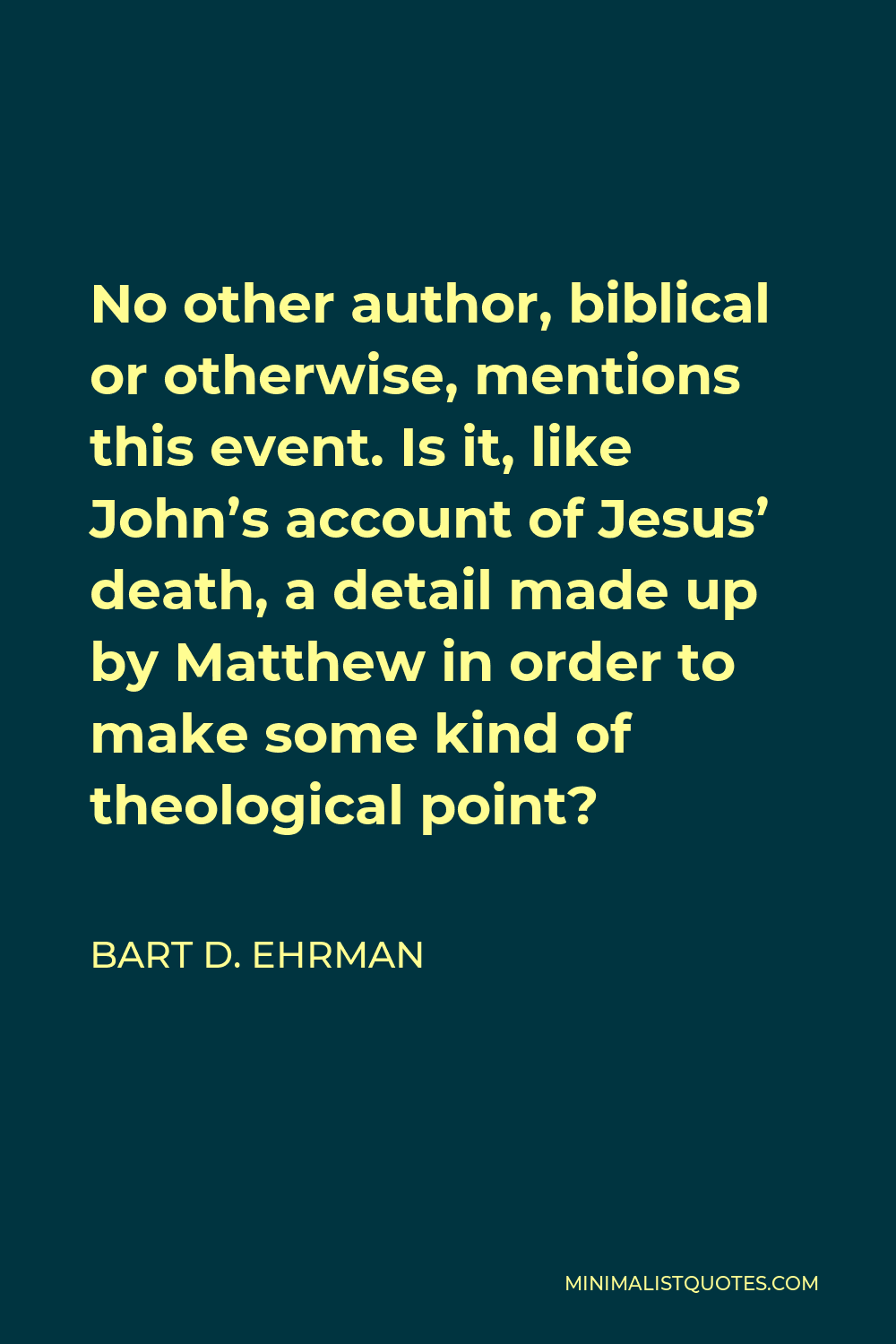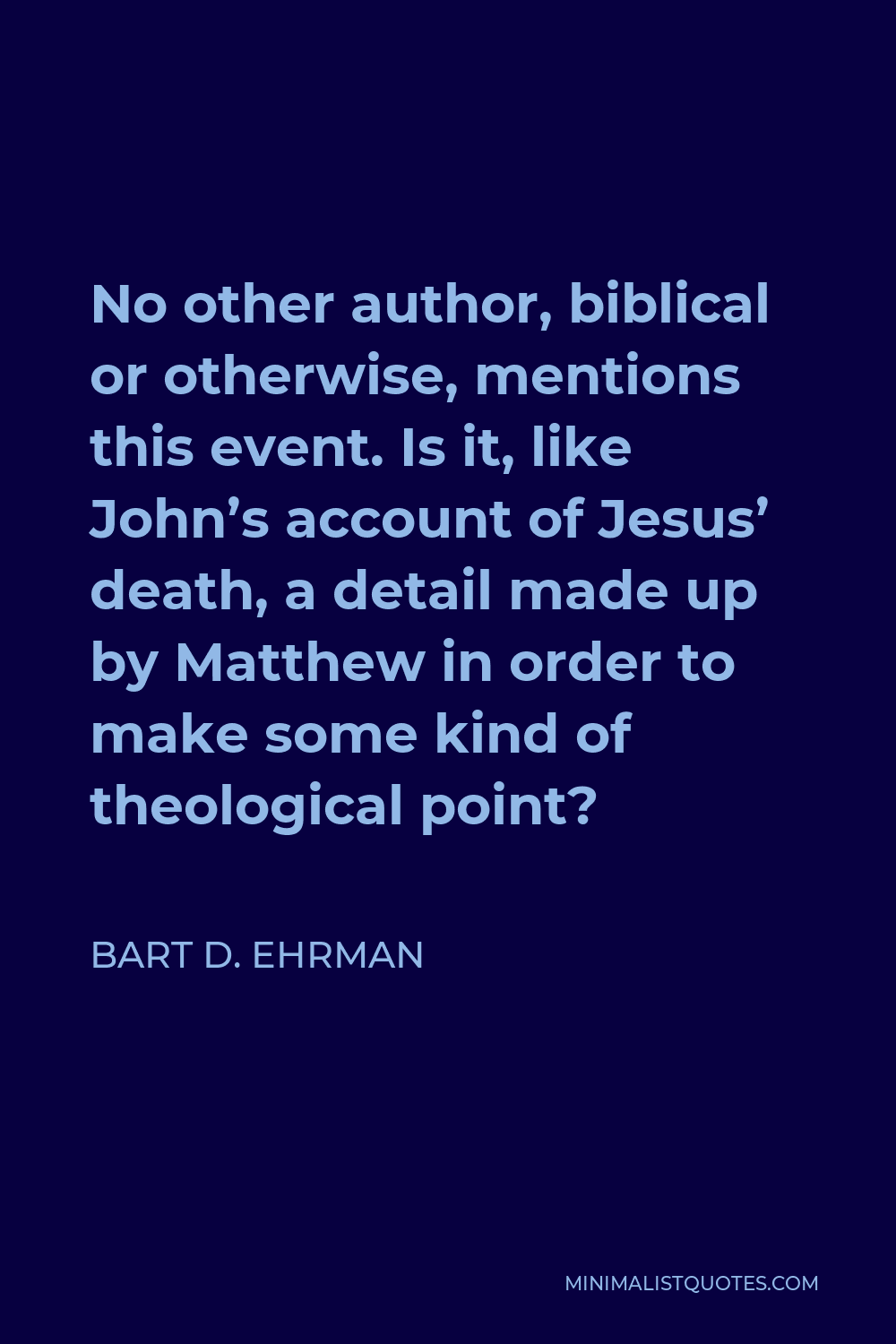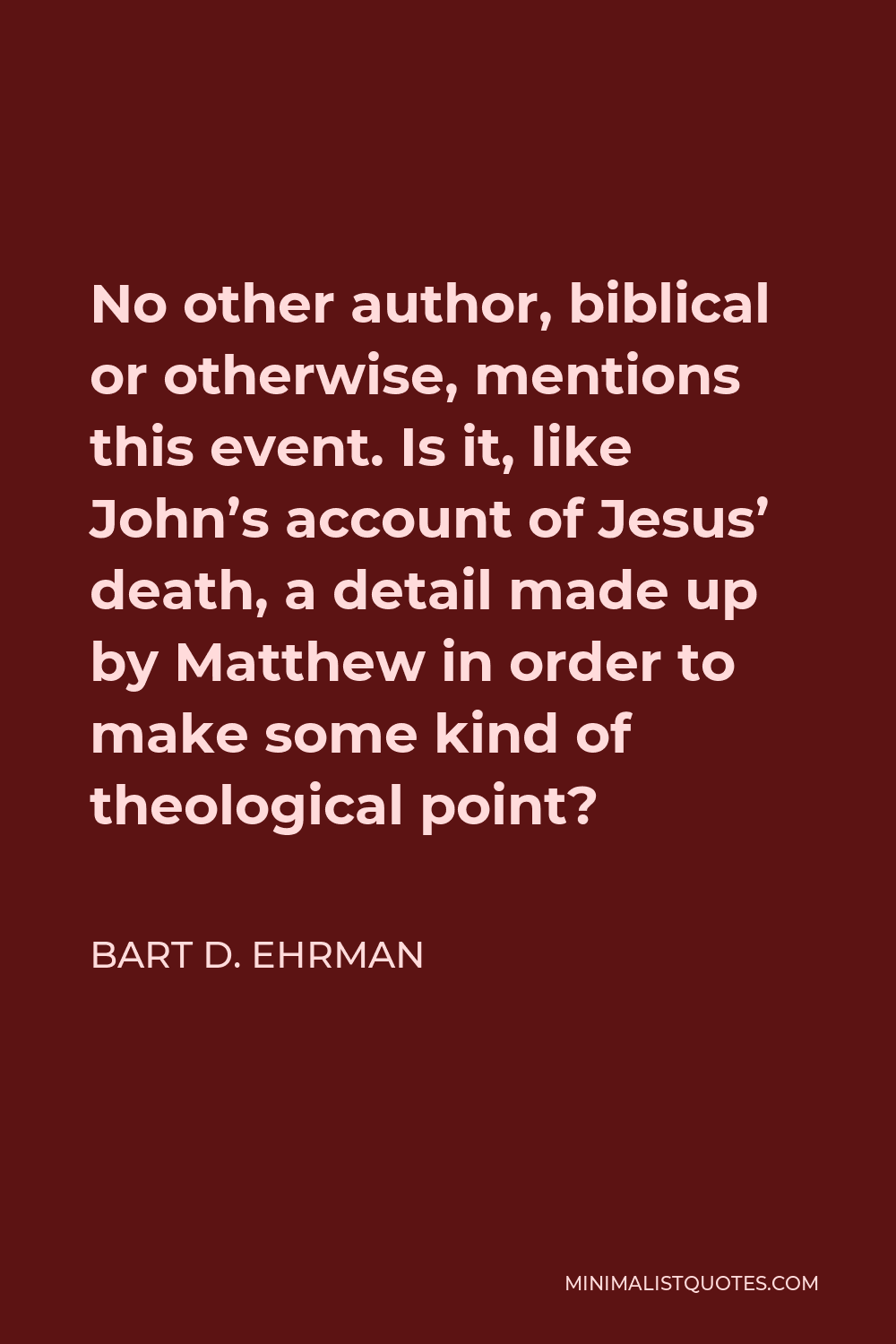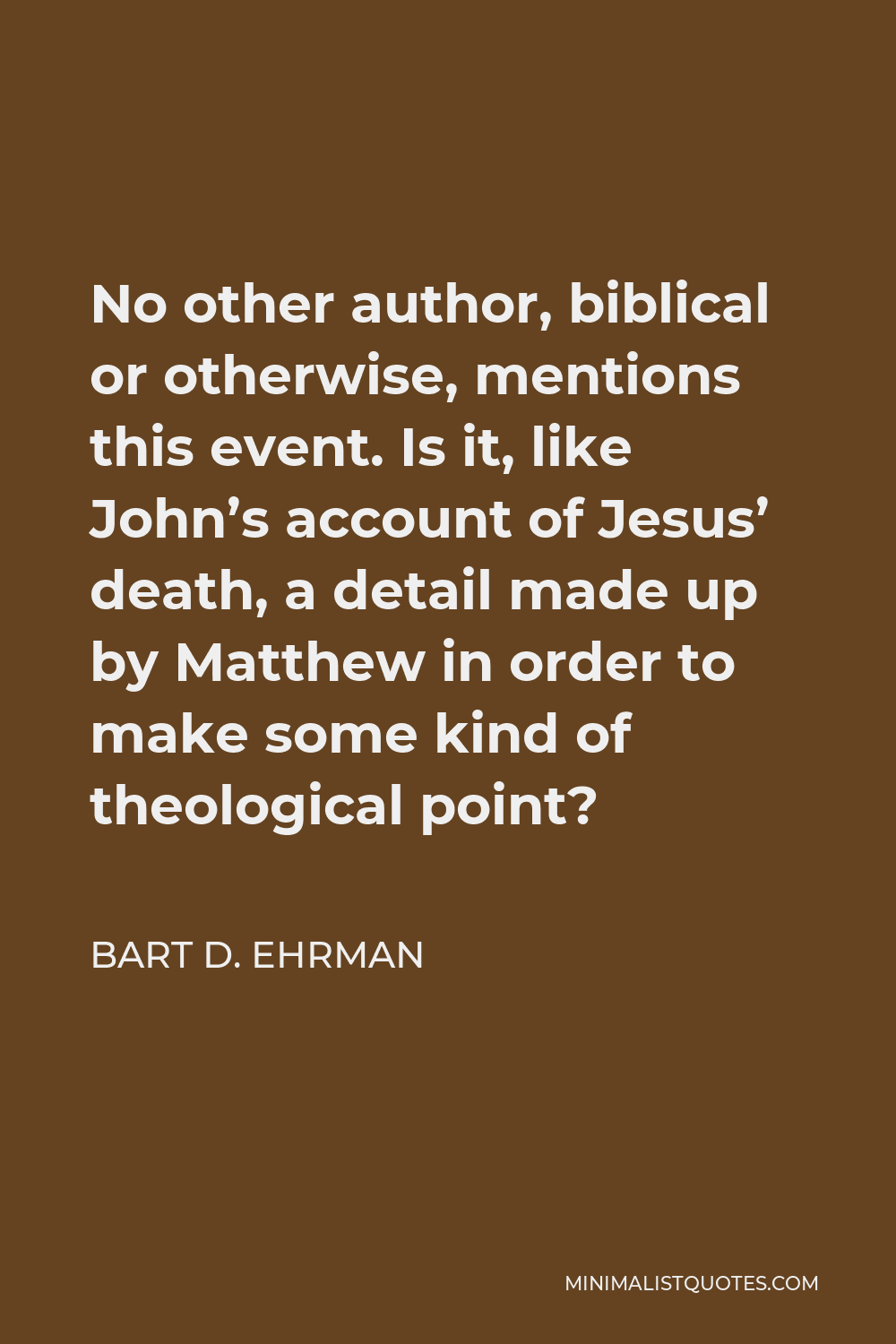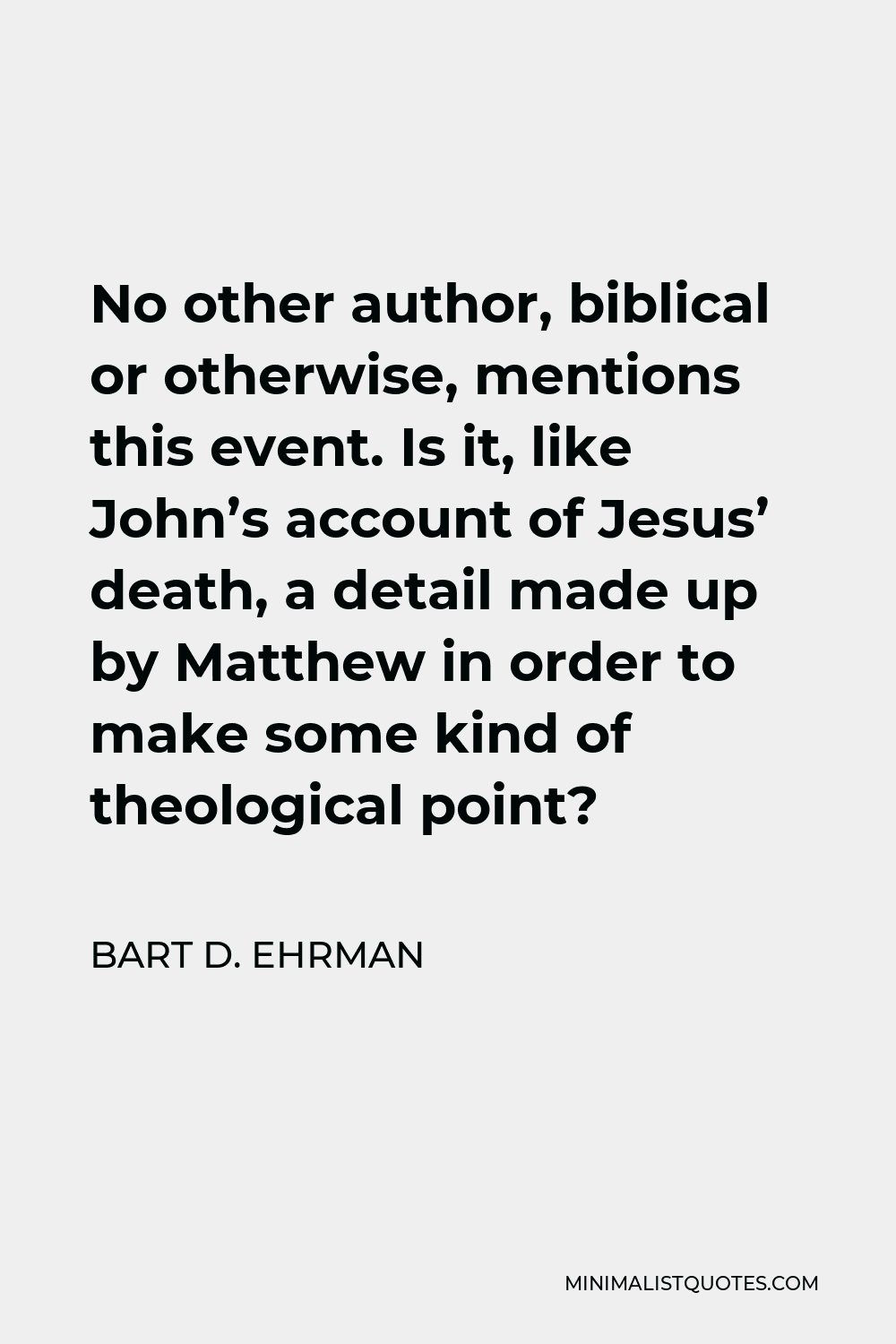Sometimes Christian apologists say there are only three options to who Jesus was: a liar, a lunatic or the Lord. But there could be a fourth option – legend.
BART D. EHRMANNo other author, biblical or otherwise, mentions this event. Is it, like John’s account of Jesus’ death, a detail made up by Matthew in order to make some kind of theological point?
More Bart D. Ehrman Quotes
-





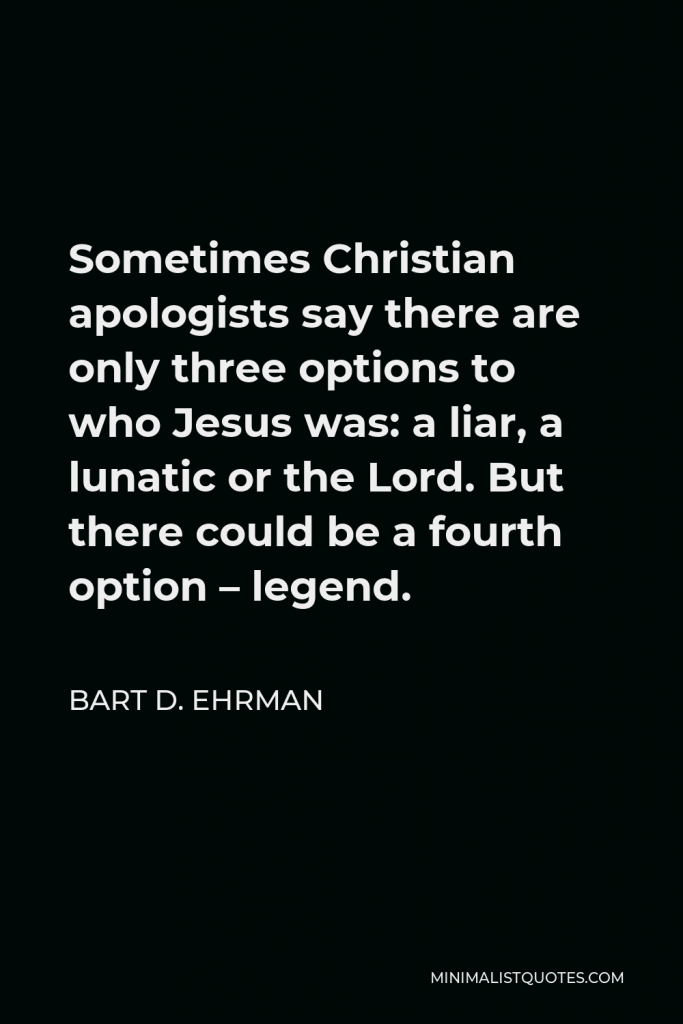

-







Everything we hear and see we need to evaluate—whether the inspiring writings of the Bible or the inspiring writings of Shakespeare, Dostoevsky, or George Eliot, of Ghandi, Desmond Tutu, or the Dalai Lama.
BART D. EHRMAN -





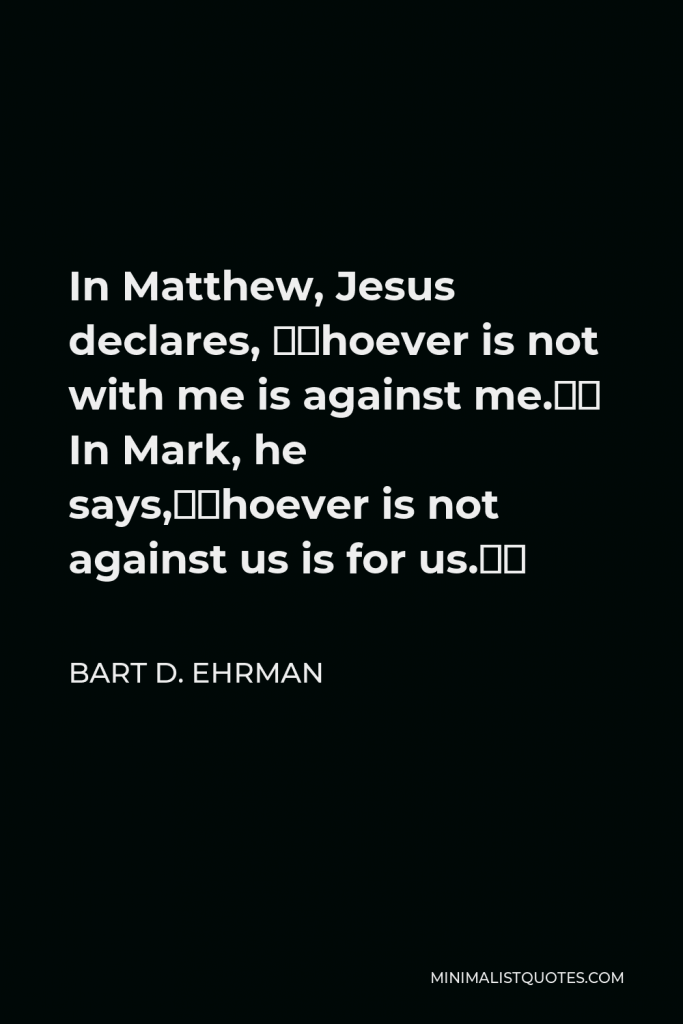

In Matthew, Jesus declares, “Whoever is not with me is against me.” In Mark, he says,“Whoever is not against us is for us.”
BART D. EHRMAN -





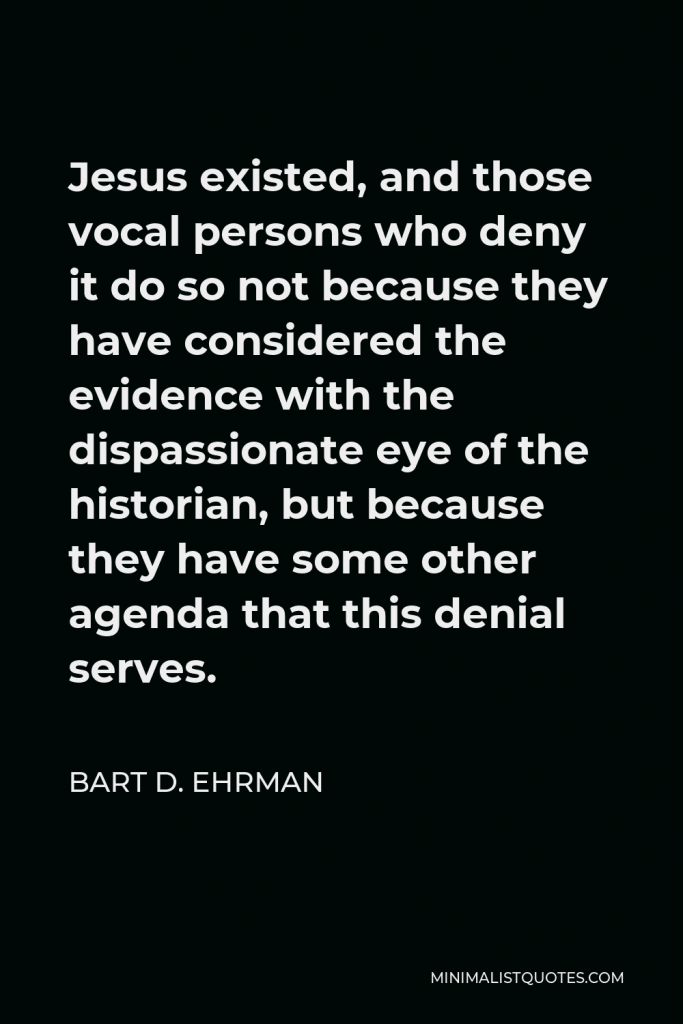

Jesus existed, and those vocal persons who deny it do so not because they have considered the evidence with the dispassionate eye of the historian, but because they have some other agenda that this denial serves.
BART D. EHRMAN -





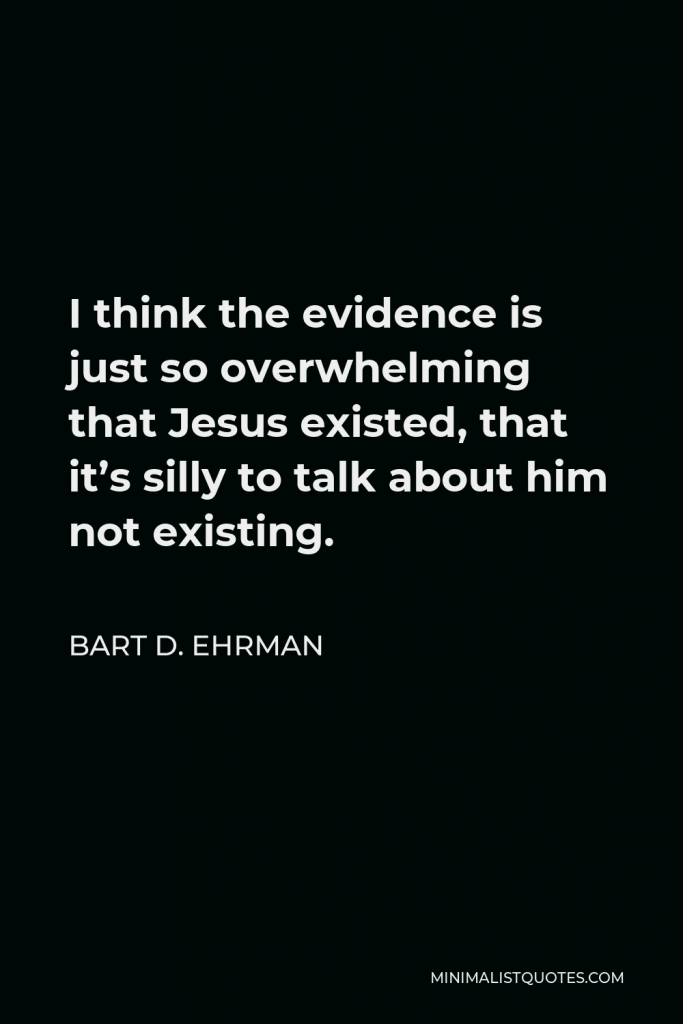

I think the evidence is just so overwhelming that Jesus existed, that it’s silly to talk about him not existing.
BART D. EHRMAN -





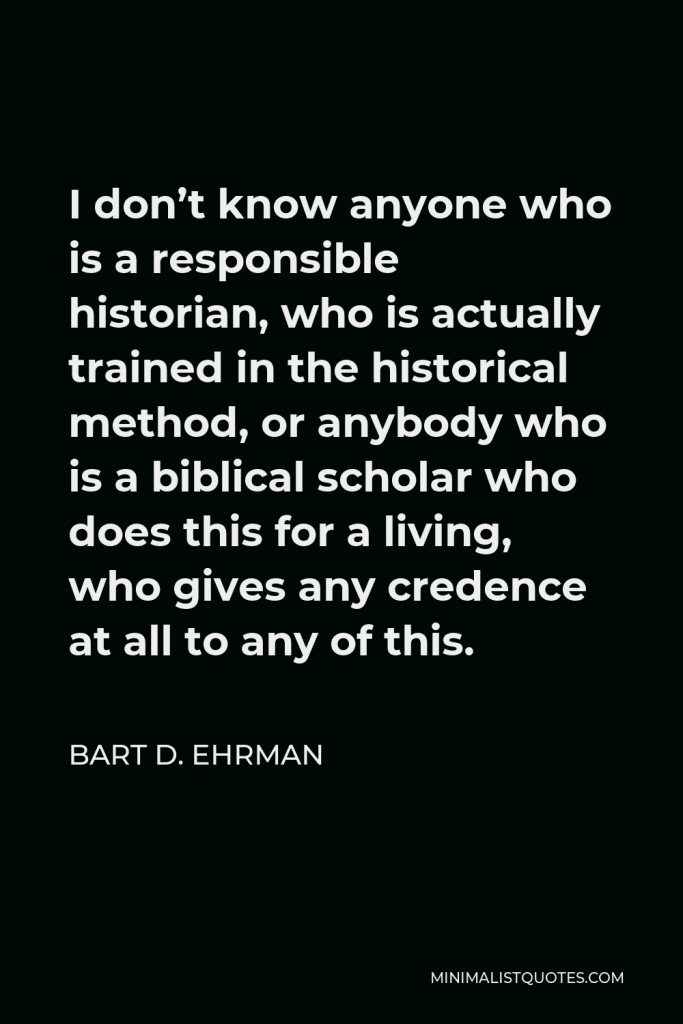

I don’t know anyone who is a responsible historian, who is actually trained in the historical method, or anybody who is a biblical scholar who does this for a living, who gives any credence at all to any of this.
BART D. EHRMAN -





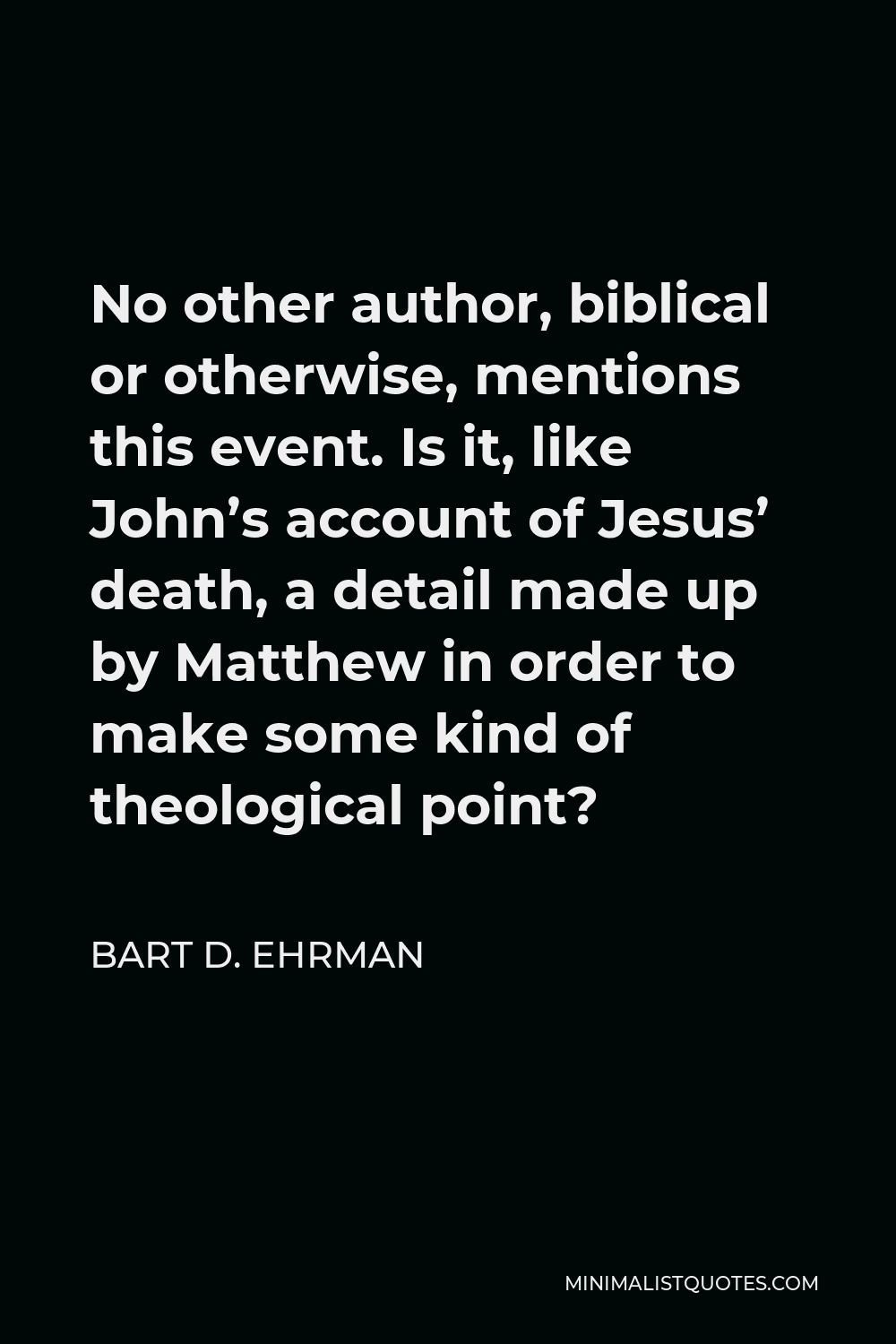
No other author, biblical or otherwise, mentions this event. Is it, like John’s account of Jesus’ death, a detail made up by Matthew in order to make some kind of theological point?
BART D. EHRMAN -





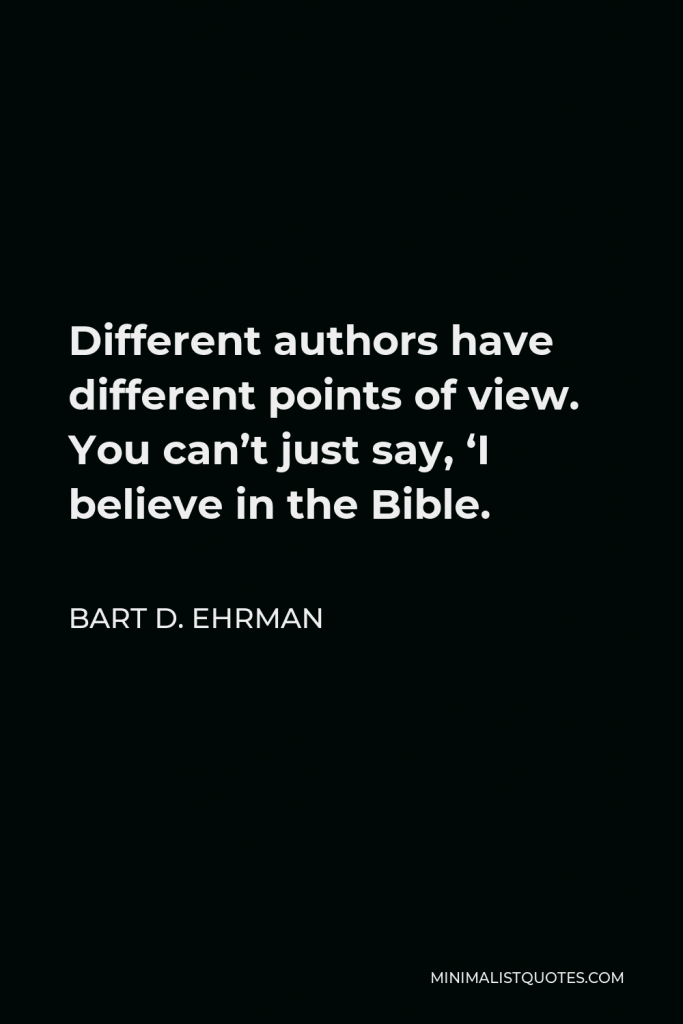

Different authors have different points of view. You can’t just say, ‘I believe in the Bible.
BART D. EHRMAN -





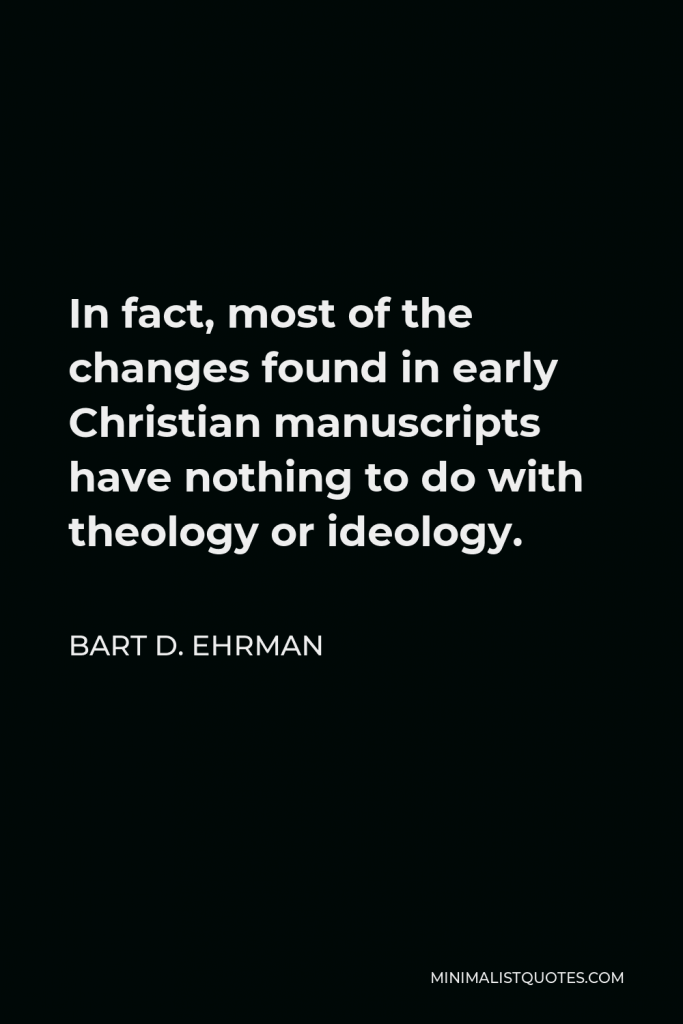

In fact, most of the changes found in early Christian manuscripts have nothing to do with theology or ideology.
BART D. EHRMAN -





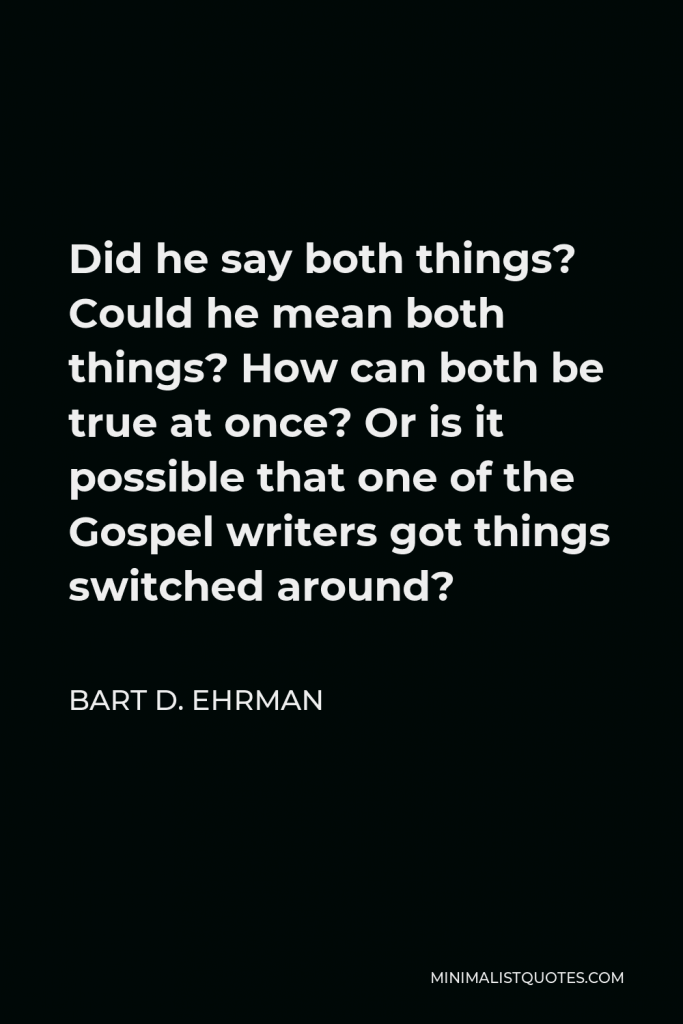

Did he say both things? Could he mean both things? How can both be true at once? Or is it possible that one of the Gospel writers got things switched around?
BART D. EHRMAN -





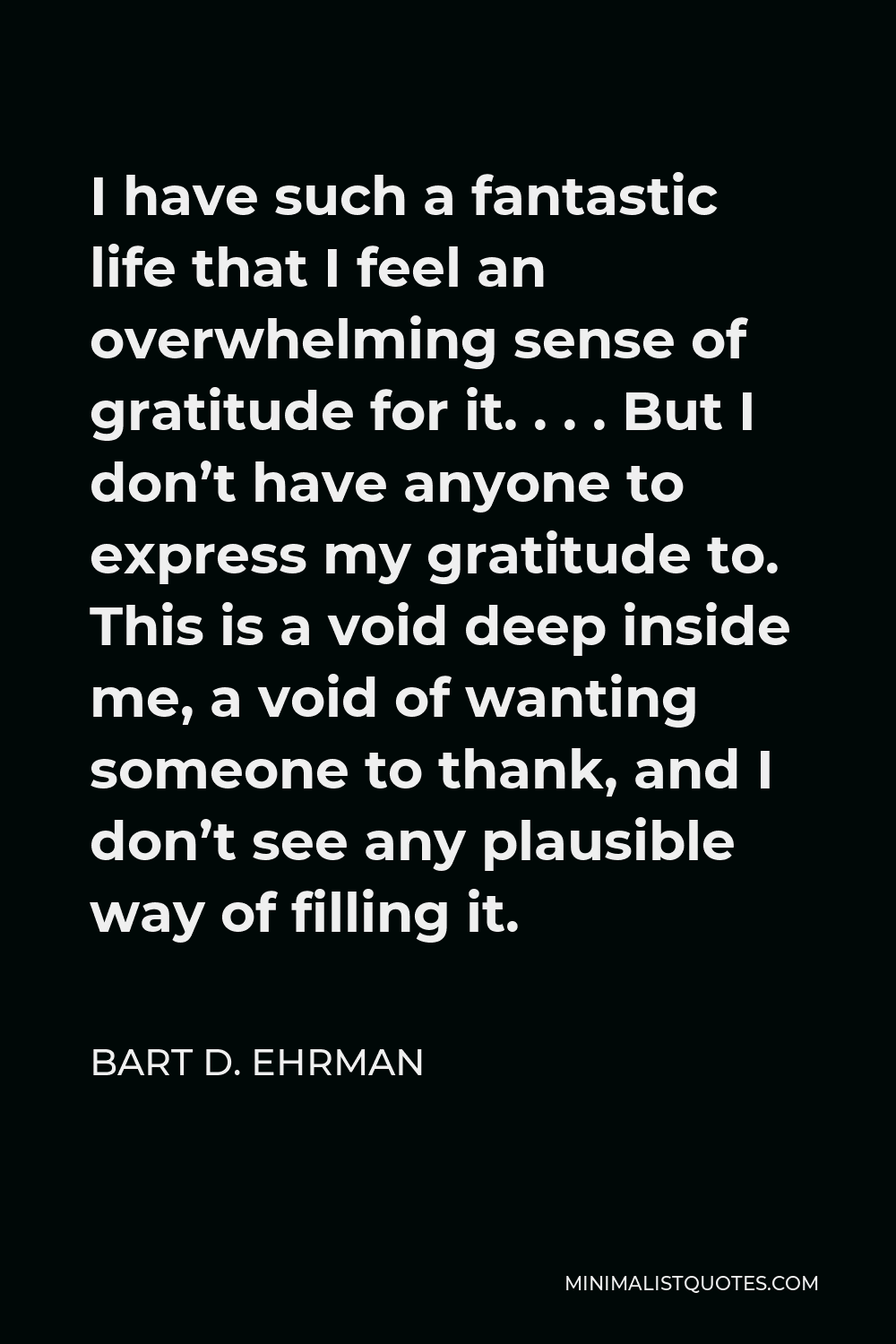
I have such a fantastic life that I feel an overwhelming sense of gratitude for it. . . . But I don’t have anyone to express my gratitude to. This is a void deep inside me, a void of wanting someone to thank, and I don’t see any plausible way of filling it.
BART D. EHRMAN -





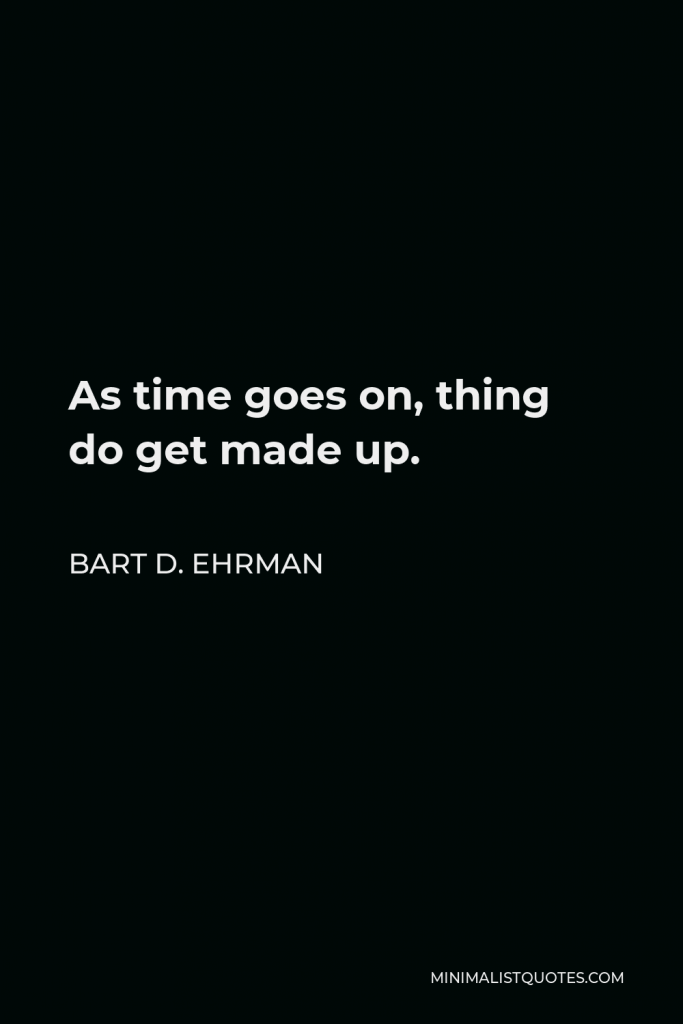

As time goes on, thing do get made up.
BART D. EHRMAN -





![Bart D. Ehrman Quote - [P]eople need to use their intelligence to evaluate what they find to be true and untrue in the Bible. This is how we need to live life generally.](https://minimalistquotes.com/wp-content/uploads/2022/10/people-need-to-use-their-intelligence-to-evaluate--683x1024.jpg)

[P]eople need to use their intelligence to evaluate what they find to be true and untrue in the Bible. This is how we need to live life generally.
BART D. EHRMAN -





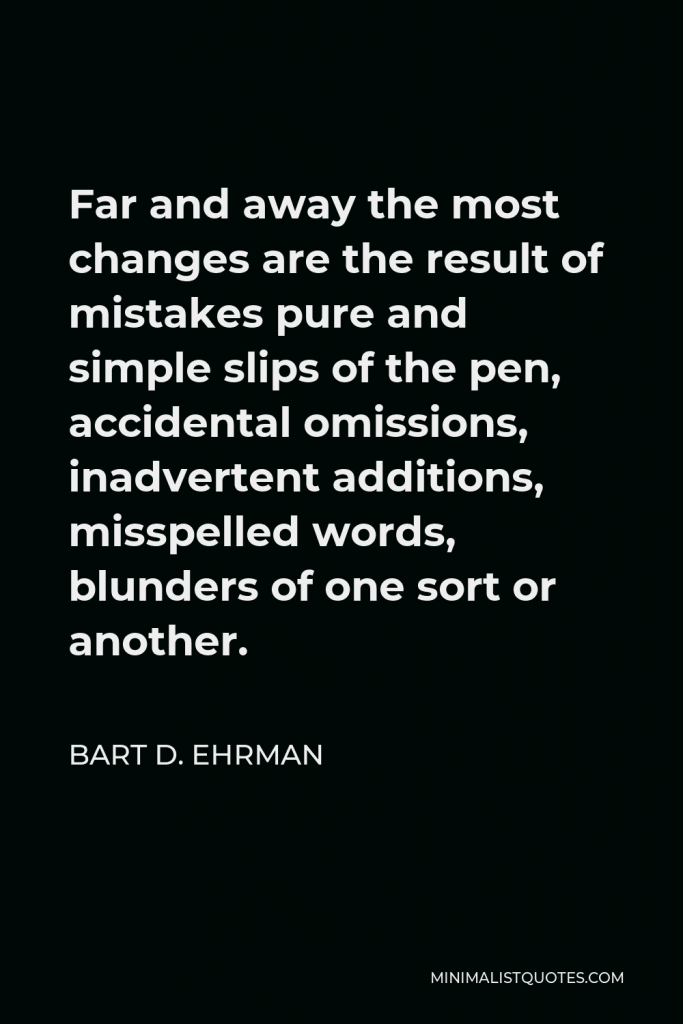

Far and away the most changes are the result of mistakes pure and simple slips of the pen, accidental omissions, inadvertent additions, misspelled words, blunders of one sort or another.
BART D. EHRMAN -





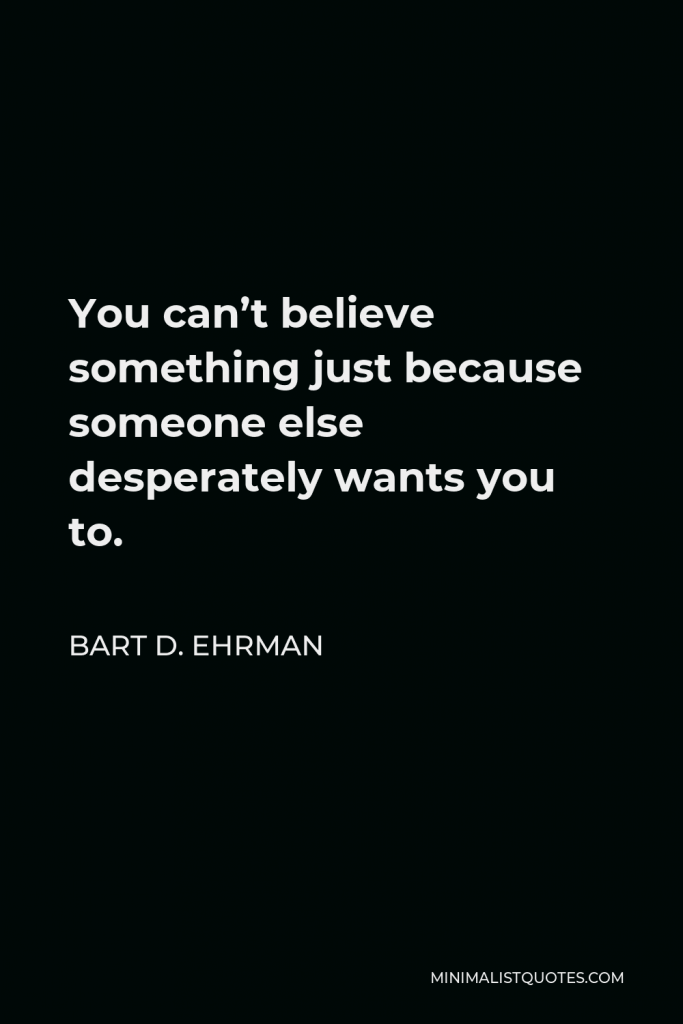

You can’t believe something just because someone else desperately wants you to.
BART D. EHRMAN -





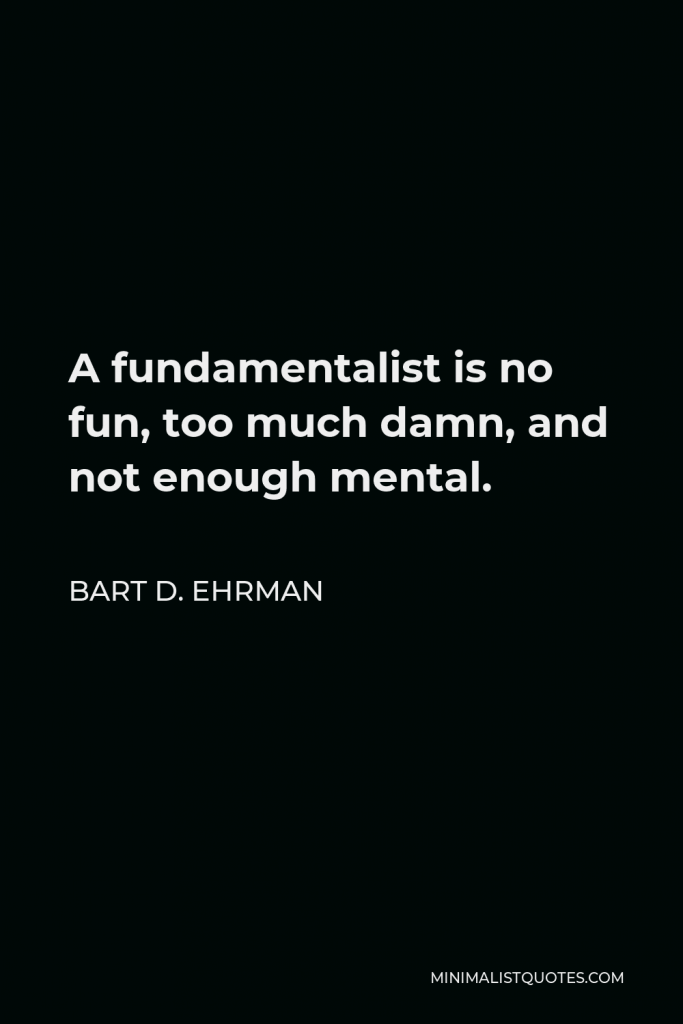

A fundamentalist is no fun, too much damn, and not enough mental.
BART D. EHRMAN
